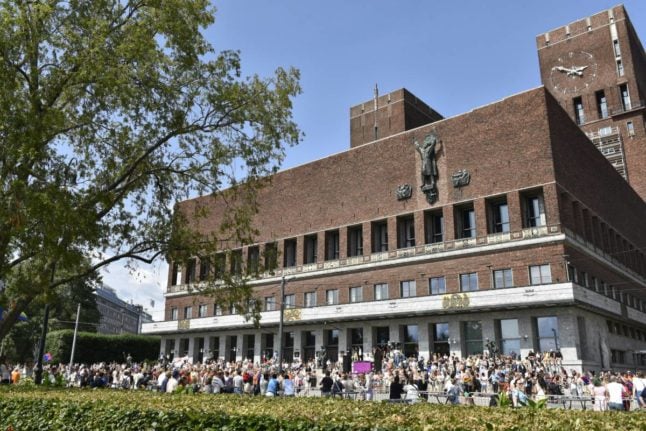Dual citizenship has become an attractive proposition for many since Norway adopted it in 2020. A Norwegian passport comes with many perks, perhaps the main one being that you can stay in the country permanently.
However, depending on your situation, it can take a while before you are eligible to become a Norwegian citizen. Another way of being able to live and work in Norway for as long as you wish (this mainly applies to non-EEA nationals as the freedom of movement doesn’t apply to them) is by obtaining permanent residency.
Many will be eligible for permanent residence after three years of living legally in Norway, making it easier to obtain.
Both Norwegian citizenship and permanent residency come with language requirements. The Norwegian language skill requirements differ between citizenship and permanent residence, however.
READ ALSO: Which countries in Europe impose language tests for residency permits?
Permanent residence
The language rules for permanent residence can differ quite a bit depending on the type of permit you have held or the nationality and permit of the person you moved to Norway to be with.
This can make it difficult to lay down the requirements that apply to everyone. To find out what specific language requirements for permanent residence apply to you, follow this link and fill out the information that applies to you.
Generally, you will need to have completed tuition and tests in the Norwegian language to qualify.
Those with skilled worker permits, aged between 16-54 who were granted their first residence permit after January 2016, will need to have either completed Norwegian language tuition of 250 hours or more, received an assessment grade at lower or upper secondary school level, or passed Norwegian level A2 at oral, listening, reading and written presentation. You will also need to pass the final “social studies test” in Norwegian or complete 50 hours of tuition in social studies.
Those with a family immigration permit who moved to be with somebody who holds Norwegian citizenship will need to have completed more than 550 hours in Norwegian language classes, been awarded an assessment grade from a secondary school, or passed at A2 level in Norwegian across four areas, and meet the social studies requirements. The same applies to those who moved to be with someone who holds permanent residence or a family immigration permit. For reference, A2 is considered a basic level by the Common European Framework of Reference (CEFR).
If you hold a family immigration permit, and the person you moved to be with has a work permit, or self-employed person permit, then you will need 250 hours of Norwegian lessons or pass at A2 level. This is in addition to completing the social studies course or passing the exam.
Those between 55-66 will either be fully exempt from language requirements or have to pass Norwegian A2. Those over 67 are entirely exempt.
You can check the rules that apply to those granted residence between 2015 and 2005 here.
EU/EEA nationals registered as living in Norway are not subject to any language requirements. Likewise, non-EEA nationals with residence cards to live with EEA nationals registered in Norway also face no requirements.
Citizenship
The rules for EU/EEA citizens and non-EEA residents are the same when it comes to citizenship, which means while those with the freedom of movement won’t need to meet any language benchmarks for permanent residence, they will need to be able to document Norwegian language skills for citizenship.
To be eligible for citizenship, on the language side of things at least, you will need to have completed the approved tuition in the Norwegian language, passed Norwegian at a minimum of A2 level and passed either the social studies test or citizenship test in Norwegian. The citizenship and social studies tests must both be completed in Norwegian.
From autumn 2022 at the earliest, the level of Norwegian required will be raised from A2 to B1 level.
If you haven’t done the required tuition, with the number of hours required depending on your situation, then you can make yourself exempt by proving you have “adequate knowledge” of Norwegian or a Sami language.
You can prove you have adequate knowledge of Norwegian and Sami by completing all four parts of Norskprøven for voksne innvandrere by Kompetanse Norge at levels A2, B1 or B2. This includes the reading test, listening test, test in written presentation and oral examination.
You also qualify if you passed both of Kompetanse Norge’s two subtests of the Norwegian test C1: lytteprøve og skriftlig fremstilling and leseprøve og muntlig kommunikasjon.
Passing the oral and written Norskprøve 2 or 3, Språkprøven i norsk for voksne innvandrere, or Språkprøven i norsk for fremmedspråklige voksne, with at least 220 points (these tests are no longer completed), also counts.
Completing studies in Norwegian or Sami at university or college level in Norway or abroad corresponding to 30 credits, or meeting the admission requirement for studies in Norwegian or Sami at a university or college in Norway.



 Please whitelist us to continue reading.
Please whitelist us to continue reading.
Member comments